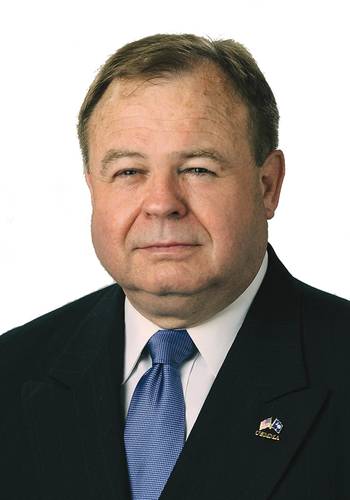Responder Immunity
Not long after specialized tank ships were developed, enabling the carriage of large quantities of oil and petroleum products, groundings, collisions, and other casualties started causing significant oil spills. In those early days, there was no financial incentive to clean up such spills. To the extent that there was a response, it was often by Good Samaritans, a term derived from a parable found in the Bible at Luke 10:25-37 about a stranger from Samaria who, with no thought of reward, came to the aid of an injured robbery victim in Judah. Over time, and particularly since enactment of the Federal Water Pollution Control Act Amendments in 1972 (FWPCA), specialized commercial entities, generally referred to since implementation of the Oil Pollution Act of 1990 (OPA 90), as Oil Spill Response Organizations – OSROs, have come into existence in the United States to respond to spills of oil and other substances into the water.
The United States, in addition to being environmentally conscious, is very litigious. Responders, whether Good Samaritans, OSROs, salvors, or others, have been concerned about being sued by third parties allegedly damaged by the response effort. Even though there is no reported case of a responder other than the spilling vessel owner/Responsible Party being held liable for damages following an oil spill resulting from response efforts, the mere threat of litigation can result in significant concern and legal expense.
OPA 90 includes a provision exempting from liability a person, other than the Responsible Party (generally the owner of the spilling vessel or facility), for damages which result from actions taken or omitted to be taken in the course of rendering care, assistance, or advice consistent with the National Contingency Plan (NCP) or as directed by the Federal On-Scene Coordinator (FOSC) relating to a discharge or a substantial threat of a discharge of oil or a hazardous substance. In 1998, the definition of “discharge” under OPA 90 was amended to include discharges incidental to mechanical removal authorized by the FOSC. The Coast Guard has defined “mechanical removal” to mean the use of pumps, skimmers, booms, earth-moving equipment, and other mechanical devices to contain the discharge of oil and to recover the discharge from the water or adjoining shorelines. These provisions go a long way towards immunizing responders from third party liability. Unfortunately, those provisions, by themselves, do not provide full immunity for responders, particularly where the third party alleges death or personal injury. Just such an allegation arose subsequent to the tragic events surrounding the explosion and fire on the mobile offshore drilling unit (MODU) Deepwater Horizon and the massive oil spill from the associated Macondo well in the Gulf of Mexico in 2010. Various plaintiffs, including masters and crewmembers of vessels participating in oil spill cleanup activities, workers who decontaminated those vessels, workers who participated in shoreline cleanup, coastal residents, and coastal vacationers, brought suit against Nalco and related parties, asserting claims under state law and under general maritime law for injuries allegedly caused by exposure to oil, chemical dispersants, or a mixture of both. Nalco is a manufacturer of Corexit, a chemical agent used to emulsify, disperse, or solubilize oil into the water column or promote the surface spreading of oil slicks to facilitate dispersal of the oil into the water column. The Environmental Protection Agency (EPA) has placed Corexit on the NCP Product Schedule, meaning that the FOSC can authorize its use in responding to an oil spill if the EPA concurs and, where practicable, after consulting with certain natural resource trustees. A scheduled product may also be pre-authorized in a regional or area contingency plan, meaning that it can be used in specific instances at the direction of the FOSC without further consultation. Corexit was pre-authorized for use by the relevant regional contingency plan for use in a response to an oil spill of the type experienced in this instance. The FOSC authorized use of Corexit in the response to the Macondo oil spill. By the time the response effort was over, approximately 1.8 million gallons of Corexit were applied either to the water’s surface or beneath the water’s surface, near the source of the discharge.
After the complaints were filed, defendants moved to dismiss the complaints, contending that they were entitled to derivative governmental immunity and/or that the claims were preempted by the FWPCA, as amended by OPA 90, and as implemented by the NCP. Eventually, the court converted the motion to dismiss into a motion for summary judgment.
Following submittal of briefs and arguments by both sides and by interested parties, the US District Court for the Eastern District of Louisiana granted Nalco’s motion for summary judgment, ruling that the FWPCA and the NCP preempted state law and general maritime law on the claims for damages for personal injuries allegedly resulting from use of Corexit on the Macondo spill. The court found that the FWPCA authorized the President, acting through the FOSC, to remove or arrange for the removal of discharged oil unless it is properly being done by the responsible party. This authority was enhanced by OPA 90, which requires the President, again acting through the FOSC, to ensure the effective and immediate removal of discharged oil and to direct all federal, state, and private actions to remove a substantial spill (such as that involved in the instant situation). In accordance with the FWPCA, the NCP provides that, in the event of a substantial spill, the FOSC must direct all response efforts and should declare as expeditiously as practicable to spill response participants that the federal government will control the response.
The legislative history of OPA 90 provides, in pertinent part, that the immunity provision was intended to encourage immediate and effective responses. It further expresses concern that, without such an immunity provision, the substantial financial risks and liability exposures associated with spill response would deter vessel operators, cleanup contractors, and cleanup cooperatives from prompt, aggressive response. In the instant case, plaintiffs contended that Corexit was defective and that defendant manufacturers should be held responsible in tort for any and all damages attributable to its use on the Macondo spill. Defendants disputed the allegation that Corexit was defective, but also contended that the claims were preempted because they conflict with the FOSC’s decisions, made in accordance with the FWPCA and the NCP, to use Corexit and/or present an obstacle to accomplishment of the objectives of the FWPCA.
The court determined that a fundamental objective of the FWPCA, as amended by OPA 90, was to eliminate confusion that had impeded past oil spill responses by establishing a clear chain of command and responsibility. States and private parties may not deviate from this direction. When directing a response, the FOSC is more than managing the response. He or she has specific legal authority to guide the activities of all parties responding to the discharge and all actions have to be authorized or approved by the FOSC. Use of dispersants is one of the activities specifically contemplated by the FWPCA and the NCP. Its use represents a trade-off between known effectiveness and known toxicity. The FOSC is specifically authorized to consider the relevant issues and make the operational decision regarding use of the chemical dispersant.
The court then states: “It would be extraordinary for Congress, after devising an elaborate permit system that sets clear standards, to tolerate common-law suits that have the potential to undermine this [statutory and] regulatory structure.” If the court were to permit these claims to go forward, then, during the next major spill response, the threat of liability might cause the manufacturer or supplier of a dispersant or other material or equipment to refuse to provide its product, despite the determination by the FOSC that such material or equipment should be utilized. Such a refusal, or perhaps even a hesitation, by a manufacturer or supplier would conflict with the statutory and regulatory design of placing the FOSC in charge of all levels of the oil spill response and empowering him or her to determine if, when, where, and how the material or equipment should be used.
This refusal would deprive the response of a tool expressly contemplated by federal law and, consequently, impede the FOSC’s ability to ensure effective and immediate removal and the efficient, coordinated, and effective response intended by law and regulation. Given the responsibility and authority of the FOSC to act in these circumstances, the court ruled that it would be improper for it to second guess the FOSC’s decisions and actions. Because resolution of the preemption issue was dispositive of the motion for summary judgment, the court declined to address the issue of derivative immunity.
This decision is important for reasons well beyond its impact on the manufacturer of a chemical dispersant and the various plaintiffs here. The reasoning so carefully laid out by the court extends to all those involved in oil spill response efforts under the direction of a FOSC, providing them with vitally needed assurance that third-party lawsuits will be brought directly against the Responsible Party and not against responders, be they Good Samaritans or OSROs, or, although not specifically mentioned by name, salvors or marine fire fighters. The decision also supports the large measure of authority of the FOSC as spelled out in OPA 90, eliminating much of the uncertainty about his or her decision-making power. These impacts clearly further the important national interests identified in the decision of ensuring that spill responses are efficient, coordinated, and effective.
Dennis L. Bryant,
Maritime Regulatroy
Consulting, Gainsville, FL
t: 352-692-5493
e: [email protected]
Jim Shirley is a Master Mariner, a former Salvage Master, and a retired maritime lawyer. He now serves as the Principal Consultant in JTS Marine LLC, specializing in maritime casualty and marine salvage and wreck removal matters.
t: (215) 968-1715
m: (917) 873-2219
(As published in the Jauary 2013 edition of Maritime Reporter - www.marinelink.com)


















